第21章
"The publishers of the paper signed 'John Pemberton,' have called in a loud manner to their friends and connections, 'to withstand or refuse' obedience to whatever 'instructions or ordinances' may be published, not warranted by (what they call) 'that happy Constitution under which they and others long enjoyed tranquillity and peace.' If this be not treason, we know not what may properly be called by that name.
"To us it is a matter of surprise and astonishment, that men with the word 'peace, peace,' continually on their lips, should be so fond of living under and supporting a government, and at the same time calling it 'happy,' which is never better pleased than when a war-that has filled India with carnage and famine, Africa with slavery, and tampered with Indians and negroes to cut the throats of the freemen of America.We conceive it a disgrace to this State, to harbor or wink at such palpable hypocrisy.But as we seek not to hurt the hair of any man's head, when we can make ourselves safe without, we wish such persons to restore peace to themselves and us, by removing themselves to some part of the king of Great Britain's dominions, as by that means they may live unmolested by us and we by them; for our fixed opinion is, that those who do not deserve a place among us, ought not to have one.
"We conclude with requesting the Council of Safety to take into consideration the paper signed 'John Pemberton,' and if it shall appear to them to be of a dangerous tendency, or of a treasonable nature, that they would commit the signer, together with such other persons as they can discover were concerned therein, into custody, until such time as some mode of trial shall ascertain the full degree of their guilt and punishment; in the doing of which, we wish their judges, whoever they may be, to disregard the man, his connections, interest, riches, poverty, or principles of religion, and to attend to the nature of his offence only."The most cavilling sectarian cannot accuse the foregoing with containing the least ingredient of persecution.The free spirit on which the American cause is founded, disdains to mix with such an impurity, and leaves it as rubbish fit only for narrow and suspicious minds to grovel in.Suspicion and persecution are weeds of the same dunghill, and flourish together.Had the Quakers minded their religion and their business, they might have lived through this dispute in enviable ease, and none would have molested them.
The common phrase with these people is, 'Our principles are peace.' To which may be replied, and your practices are the reverse; for never did the conduct of men oppose their own doctrine more notoriously than the present race of the Quakers.They have artfully changed themselves into a different sort of people to what they used to be, and yet have the address to persuade each other that they are not altered;like antiquated virgins, they see not the havoc deformity has made upon them, but pleasantly mistaking wrinkles for dimples, conceive themselves yet lovely and wonder at the stupid world for not admiring them.
Did no injury arise to the public by this apostacy of the Quakers from themselves, the public would have nothing to do with it; but as both the design and consequences are pointed against a cause in which the whole community are interested, it is therefore no longer a subject confined to the cognizance of the meeting only, but comes, as a matter of criminality, before the authority either of the particular State in which it is acted, or of the continent against which it operates.Every attempt, now, to support the authority of the king and Parliament of Great Britain over America, is treason against every State; therefore it is impossible that any one can pardon or screen from punishment an offender against all.
But to proceed: while the infatuated Tories of this and other States were last spring talking of commissioners, accommodation, making the matter up, and the Lord knows what stuff and nonsense, their good king and ministry were glutting themselves with the revenge of reducing America to unconditional submission, and solacing each other with the certainty of conquering it in one campaign.The following quotations are from the parliamentary register of the debate's of the House of Lords, March 5th, 1776: